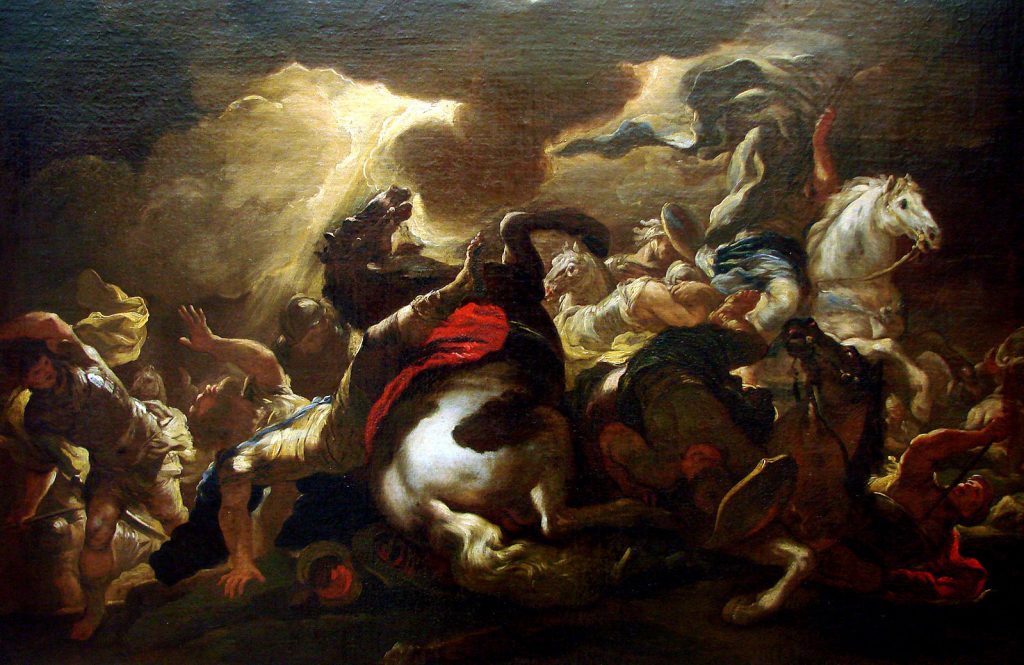St. Paul is a special patron to me.
He isn’t any ordinary saint. He’s unique. And the Church calendar reflects the extraordinary role he played in God’s revelation. The Apostle to the Gentiles gets not one but two feasts. At the end of this month, on June 29, he shares a feast with St. Peter, with whom he died as a martyr as they consecrated Rome with their blood.
On Jan. 25 the Church also celebrates the Conversion of St. Paul. For St. Paul’s conversion marks a milestone not only in his own life, but in the life of God’s people. Once a persecutor of Christ, he became the Lord’s preacher. Once an impediment to the Gospel, he became its great champion. Once a guardian of Israel as an ethnic preserve of holiness, Paul came to serve as a father in the worldwide (literally, Catholic) Church that included both Jews and Gentiles.
The story of St. Paul’s conversion is told repeatedly in the New Testament, three times in the Acts of the Apostles and then, briefly, in St. Paul’s own correspondence with the Galatians and Corinthians. In all of history, no other conversion gets that kind of special coverage, with God himself as primary author of the narrative!
It’s possible, though, to overemphasize the uniqueness of his conversion. When we consider the lives of the saints, we can be tempted to miss the lessons that apply especially to us.
We’re all called to conversion — and we’re always called to conversion, even if we’ve been Catholics since the cradle and attending Mass daily for decades.
Jesus said, “Truly, I say to you, unless you turn and become like children, you will never enter the kingdom of heaven” (Matthew 18:3). The word he used for “turn” is at the root of all our Christian terms and notions about conversion.
Conversion is a turning toward God. It is a turning away from sin and from attachment to worldly things and worldly cares. This is the work of a lifetime. It’s not the matter of a moment. It’s not just “once and done.”
Unless we turn — unless we become “converts” — we’re not Christian. Unless we make a habit of repentance, we’re not disciples of Jesus Christ. We must convert again and again. We celebrate our conversions whenever we go to confession. We celebrate our conversions, in fact, whenever we resist distraction and turn to our Father God in prayer.
In his Apostolic Exhortation “Evangelii Gaudium” (“The Joy of the Gospel”), Pope Francis makes this matter abundantly clear. He is worried less about the enemies “out there” in the world than the enemies within — the vices and the unconverted habits that tempt us away from Christ and threaten our perseverance in the faith.
He calls baptized Christians to “experience a conversion which will restore the joy of faith to their hearts and inspire a commitment to the Gospel.” He defines conversion as “openness to a constant self-renewal born of fidelity to Jesus Christ.” He emphasizes that even the pope must undergo such a conversion.
If we work on this, he says, all else will fall into place, in society and in the Church.
St. Paul should be our model for conversion. His conversion was ongoing, lifelong, never easy, but always joyful. “Rejoice in the Lord always,” he said in his Letter to the Philippians (4:4). “Again I will say, Rejoice.” Paul is joyful not because of how good things are getting, but how good God is. That’s the fruit of true conversion.

